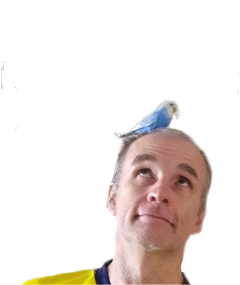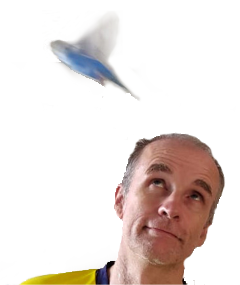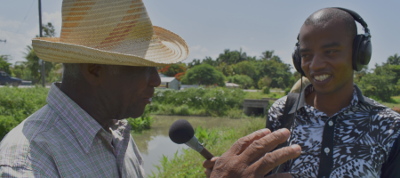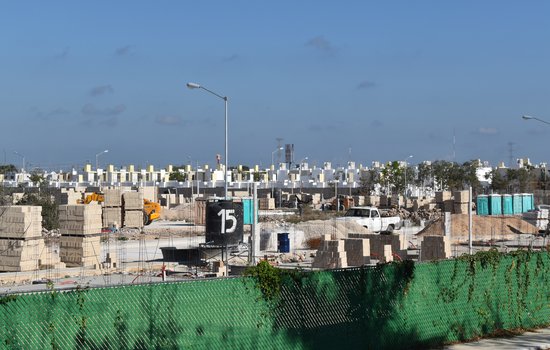
The soul outside Merida's "artistic" center
March 26, 2019
Last month, the New York Times published a frothy little piece about the ex-pat community in Merida. I did not recognize the city it described and neither, I expect, would my neighbours. Sure, it's a travel piece. You can't expect them to come out to the burbs. But there really is a story in Merida right now, and out here it looks very different.
On a torrid April mid-morning, I stood with my kids in a thin sliver of shade cast by a building in Ciudad Caucel, a sprawling suburb on the western edge of Merida, Mexico. There were already several people pressed up against the building so I had to stand partly in the sun, one arm searing in the heat. I rued my choice of tourist’s T-shirt but the washing machine had broken down today and I had nothing else to wear. Fortunately, I did have a hat, a castoff from my brother-in-law. It bore the logo of the Partido Revolucionario Institucional, the political party that ruled the country with an iron first for 70 years. In cooler times it might have been a reminder that autocracy is never far away in Mexico; today it just kept me from fainting. No one said a word as we stared hopefully in the direction the bus would come.
We were a cosmopolitan group, judging by the looks of us. The waif-like girl with dark skin and lanky hair was almost certainly indigenous, from Chiapas or Oaxaca or one of the other southern states. The tall whiter-skinned man with moustache and a checked shirt stretched across a comfortable belly was probably from northern cowboy country, Sinaloa, perhaps, or Chihuahua. The young couple, he with hipster beard, her in trendy leather sandals, were chilangos, residents of Mexico City. And the two ruddy fellows in ripped clothes spackled with concrete could be Yucatecans, natives of this state, but from some remote Mayan village as culturally distant as anywhere else in the country.
So it goes in Ciudad Caucel. Take any five people, and its a sure bet four of them are from somewhere else. People have been flocking here by the thousands from the rest of Mexico, drawn by Merida’s low crime rate. Fifteen years ago this suburb was just jungle and farmland. Today, 100,000 people live here. Houses spread to the horizon, street after treeless street of white concrete boxes, at most two tiny bedrooms and a patch of grass in front. Where the houses end, bulldozers chomp at the trees and cement mixers trundle through the dust. As a housing development, Ciudad Caucel is hastily-constructed and shoddy. As the world’s most sumptuous refugee camp, it is at least better than the alternative.
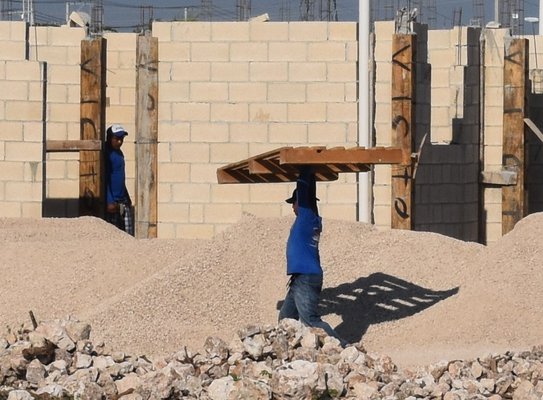
“Mexico City was no place to bring up kids,” one young father told me at a party. “You can never relax.” Crime, kidnapping, drug violence are always on your mind as you drop your kids off at school, he says. In Cancun, just four hours away, executions in broad daylight are an almost weekly occurrence. Merida, on the other hand, is one of the safest city’s in the country. Here in Ciudad Caucel it is still possible to leave your car unlocked and have a good chance of returning to find it untouched. “You don’t mind the heat?” I asked one soccer mom from Tamaulipas as we watched our kids thrash about on the field. “Pff,” she answered. “I love the security!” A mother beside her grinned. “Peace of mind!” the two exclaimed in unison, then laughed, as if exorcising some horrible memory.
Mind you, people come here to work. The building boom in Caucel, and even more so in the richer northern end of the city, brings in construction workers from the Mayan villages -- the two waiting at our bus stop, for example. The Chiapanecan girl next to them is almost certainly heading to clean a rich person’s house in the center, or perhaps one of the many foreign-owned AirBnbs. At a guess, the cowboy runs a taco stall: selling tacos is a popular occupation for many from the northern ranching states. In fact, food is the go-to industry for anyone who needs to make money. Tattered signs in living room windows advertize Oaxacan cheese, coffee from Veracruz, fish from Campeche. Uber Eats and its local competitors are everywhere. While we wait for the bus, deliverers drive by on ear-splitting Chinese motorcycles about once a minute.
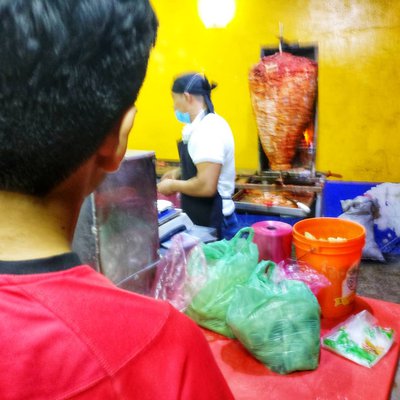
Unfortunately, Yucatan also has some of the worst salaries in the country. Factory workers earn $10 a day. A secretary gets $250 a month. My wife is paid $4 an hour to teach English in public schools. With several different schools to attend throughout the city, she spends four grueling hours a day on public transport, or longer when the overcrowded buses stop picking up passengers. She returns in the evening, along with the rest of Ciudad Caucel’s car-less residents, packed like sardines in the bus, red-faced and exhausted and ready for bed.
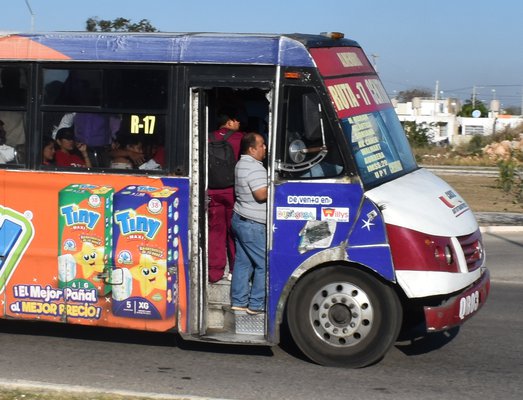
The city was not so cruel fifteen years ago, nor so cosmopolitan. It used to have a pace that some would call dreamlike, others turgid, but all would agree was distinctly Yucatecan. There was a stateliness to the main avenue, Paseo Montejo. In the evening the glorious fin-de-siecle mansions were lit up and buzzing with life. Some were restaurants, the more exclusive serving the casta divina, the white upper class that has ruled Merida since the mansions were homes to slave-owning henequen farmers. But you could also find more economical ice-cream and sherbet shops, or forego food altogether and stroll with your family in Sunday best for an evening constitutional. Bars and clubs had a distinctly regional feel: a salsa joint where the son of one of the members of Buena Vista Social club played; a cafe with signed pictures of movie stars, writers and musicians from Mexico’s cultural golden age of the 30s, 40s and 50s; a bar where a trio of ageing musicians play the soft wistful trova Yucateca. One of the musicians claimed to have met the poet laureate of trova, Ricardo Palmerin, as a child. My wife and I sat with them after closing, buying them tequilas and drinking up their stories. The next day we returned to find the bar closed for good. The following year, the cafe was turned into a tourist trap with bamboo furniture and margaritas. Today, the larger mansions on Paseo Montejo are banks, crumble, or stand empty, and the casta divina have migrated to the gleaming shopping malls in the north of the city. The eateries that remain on the avenue are now tony little creperies, a Korean Barbecue place, an Irish pub. Most are owned by foreigners.
Not that the locals resent the gringos. They tip well and restore old houses downtown that no one else wants, a taxi driver tells me. (Real estate signs downtown are mostly in English.) It is the out-of-towner Mexicans, especially the chilangos, that really get up their nose. They are seen as rude, arrogant, impatient of Merida’s slower pace of life. My sister-in-law advised me to only ask directions on the street from people with the squat, squarish physiognomy of Yucatecans. “You can’t trust any one else,” she said, not noticing, apparently, that I look very foreign. The out-of-towners, meanwhile, mutter that the locals are insular and unfriendly and drive like country bumpkins. It reminds me of a phenomenon I witnessed back in Canada, where locals and immigrants would grouse about each other in private but greet one another with smiles and handshakes in public, especially when there was business to be done and money to be made.
But the main reason Merida’s locals complain about the influx of people from the rest of the country is the crime they are said to bring. In fact, Merida’s crime rate is remarkably low and has remained flat even as other cities spiral into horror-movie nightmares. But there is a palpable unease here. To begin with, the government’s crime-fighting efforts don't look reassuring, even if they are effective. Intersections and avenues bristle with video cameras, and in residential neighbourhoods like Ciudad Caucel, police stop and search anyone who looks like a non-resident, usually darker-skinned men. Meanwhile, there are reports of the kinds of crimes that plague the rest of the country but would have been unthinkable here a decade ago. Armed gangs hiding out in the bush. A narco banner hanging from an overpass. Just last month, police turned up a clandestine fuel-siphoning operation on a pipeline near the Walmart in Ciudad Caucel. Social media is rife with even worse accounts: brazen daylight theft, kidnappings and disappearances, unexplained police blockades.
In person, the conversation turns darker still. Merida's relative calms, locals whisper, is because Merida is “ground zero” in the country’s drug war. The gangs that compete in other states, the theory goes, send their loved ones here, as well as their money, and protect it all with an informal truce between them. Perhaps it is all just paranoia and fake news, I suggest to a friend. After all, there’s no proof. “Huh. You’ll never hear about this stuff in the media,” she answers. She sounds bitter and dismissive, but then, her husband was killed in Ciudad Caucel a few years ago.
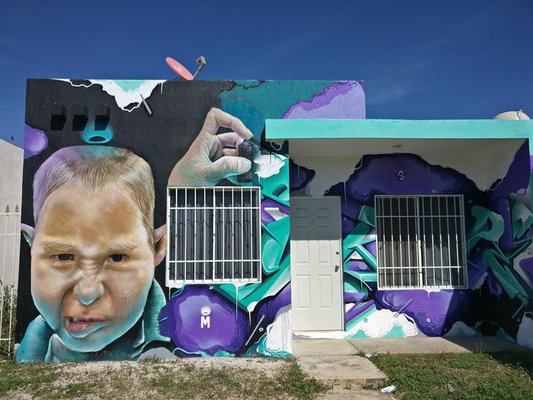
All these changes seem to have taken a toll. The Spanish newspaper El Pais recently reported that Yucatan’s suicide rates are the highest in the country. But in Merida, the city’s soul has not been extinguished, just metastasized. In the monotony of Ciudad Caucel you see it in the trim little gardens, in the way neighbours drag hoses across the street to water trees in the boulevards, how each week they return home with some small improvement from Home Depot – an awning, a barbecue, new furniture, a bike for the kids. Go into the local print shops and listen to them ordering flyers for their hopeful little home businesses (none more hopeful than my own robotics academy). There may be no museums or art galleries and barely any cafes, but that’s OK because the main intellectual pursuit here is homework. In the evening, the rows of houses down each street become colorful monks cells, each window revealing a child hunched over a kitchen table, textbooks, glue, scissors, paper, laid out in front of them, as the rest of the family watches TV, chats or does household chores around them. So while water pressure is spotty, there are frequent blackouts and internet is abysmal, for us, each house is a small claim on the future.
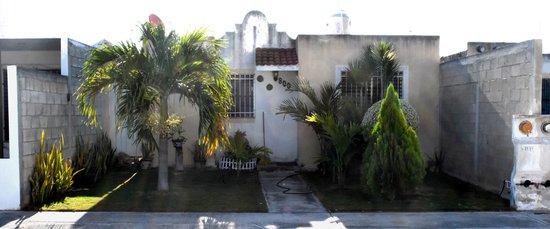
And if we really want to partake of Merida’s artistic soul, we can just hop on a bus and head to the center... although perhaps not today. After 40 minutes waiting, the shade has depleted and the bus still hasn’t come. The cowboy groans, hitches up his jeans, and walks off. The chilangos start texting something. The construction workers mutter to each other in Mayan and cross the road to the convenience store. Me and my kids head back home through the blazing heat. They have homework to do, and I still need to fix the washing machine.
